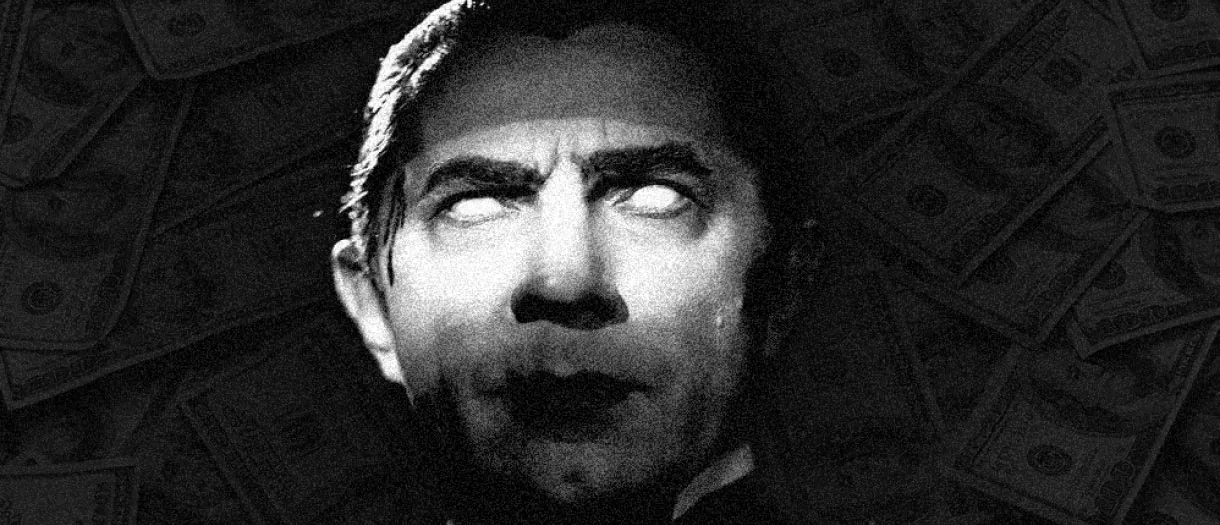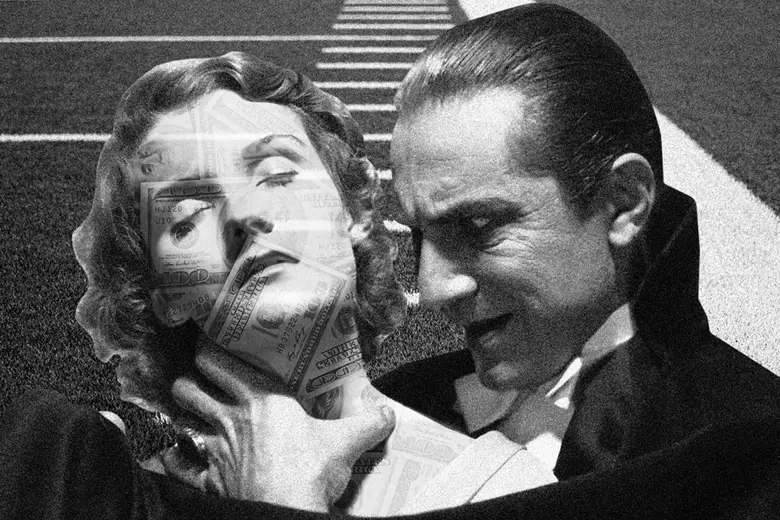Beware the vampire effect in advertising

Summary
The celebrity spokesperson is an age-old marketing gimmick. Today, it’s prominent in the nascent sports gambling industry. But there’s not a lot of evidence to support the effectiveness of
the celeb approach: the academic research suggests that audiences remember the celebrity, but not the brand they’re affiliated with. It’s a phenomenon called the “vampire effect”—and it’s one you’ll want to explore before blowing your marketing budget on a big name.
When everybody else relies on celebrity endorsements, you’ll need to choose a different tactic to stand out.
Celebrities: we just can’t get enough of them. Or at least, that seems to be the conclusion that major brands throughout the world all seem to be drawing.
During the 2023 Super Bowl, nearly every ad featured a celebrity of some sort, no matter how tangentially related they were to the brand in question. Ben Affleck and Jennifer Lopez for Dunkin Donuts. Katy Perry for Skip the Dishes. Will Ferrell for Netflix and General Motors in the same ad. PopCorners somehow finagled a reunion of Breaking Bad’s Bryan Cranston and Aaron Paul.
It’s enough to make you think all the world’s ad agencies colluded to keep struggling commercial actors out of work.
For years, A-listers largely shied away from pitching products, thinking that an appearance in something as vulgar as a commercial would dilute their own personal brands. Many were quite happy to do ad work in Japan, where the likes of Madonna, Harrison Ford and Keanu Reeves all cashed cheques, far from the prying eyes of North American media markets.
Then came the rise of social media and, before long, influencer marketing, where content creators known for one particular interest started to recommend products and services that were relevant to their field of expertise. Influencer marketing became a successful tactic because it offers a relatively low-cost avenue for start-ups and established businesses alike to get their names and wares in front of their target audiences.
While influencer marketing is alive and well, the return of the celebrity endorsement is a somewhat different beast.
For one, the costs involved are simply out of reach for anyone other than the biggest brands.
More importantly, though, the evidence suggests that celebrity spokespeople don’t deliver a great return on investment.

Sucking up budgets—and brand awareness
A considerable amount of academic research has determined that, unless a celebrity spokesperson has a “distinct and specific relationship” to the brand they’re endorsing, customers are much less likely to remember the brand vs. the celebrity—a phenomenon known as the “vampire effect.”
The vampire effect is particularly apparent in the sports betting industry. Over the past five years, as governments around the world eased gambling restrictions, we’ve seen a litany of premier athletes extolling the virtues of one platform or another: Wayne Gretzky and Connor McDavid (BetMGM), Neymar (PokerStars), Charles Barkley (FanDuel), Auston Matthews and Georges St-Pierre (Bet99), even Usain Bolt (Ganapati).
Perhaps the most bizarre instance? Bet365 also hiring Aaron Paul, who played a struggling meth addict on Breaking Bad—probably not the wisest choice for an industry plagued by its own addiction issues.
Armed with vast marketing budgets, these gambling platforms clearly believed that landing a celebrity spokesman (they are uniformly men, it should be noted) would add instant credibility: a wink that says “yes, we’re real, we know sports and we have enough house money that you can feel comfortable giving us your credit card’s CVV and expiration date.”
These sorts of gambling commercials have since become ubiquitous during sports broadcasts, as brands try to carve out a lucrative stake in a burgeoning industry: one estimate put the 2022 global sports betting market at $83.5 billion, and we can only assume that number has gone up over time.
Shown repeatedly over the course of watching a game, though, the ads become a miasma of amateurish copywriting, stilted acting and poorly rendered VFX backgrounds, with very little to distinguish one brand from another.

Betting on a different message
The onslaught of sports betting ads has no doubt raised the profile of industry, but the individual brands that pursued the endorsement strategy have failed to make much of an impression on viewers.
Indeed, there are signs that the gambling industry’s celeb strategy may be petering out. One platform, FanDuel, launched a comedic ad campaign in late 2022 that highlights some of the other “bets” a sports fan may make—their odds on a dating app, or whether picking up a hitchhiker is a good idea—as a way to normalize spending a couple dollars on a Sunday afternoon of NFL. No big-name actors or athletes, just a clever, relevant idea executed effectively.
Not coincidentally, FanDuel also boasts the biggest share of the American gambling market, with one report putting them at about 45% of the total market as of late 2022.
Of course, FanDuel also went ahead with a splashy pre-Super Bowl campaign in early 2023 featuring ex-NFLer Rob Gronkowski attempting to kick a field goal—a campaign that I had completely forgotten was a FanDuel creation until researching for this article (more anecdotal evidence of the vampire effect in action).
Even if the gambling advertisements are showing signs of changing tactics—and with governments, such as Ontario’s and the United Kingdom’s, starting to outlaw celeb endorsements in gambling ads specifically—we’re no doubt in store for more celebs in our non-sports advertising.
If brand managers are savvy enough to lure actors or singers with a relevant connection to their business, then the strategy could pay off. The Bennifer Dunkin spot, for example, trades in Affleck’s well-known and genuine love of the Massachusetts-based coffee chain.
But if the rest of the Super Bowl ads are any indication, we’re due for more head-scratchers than profile-raisers.